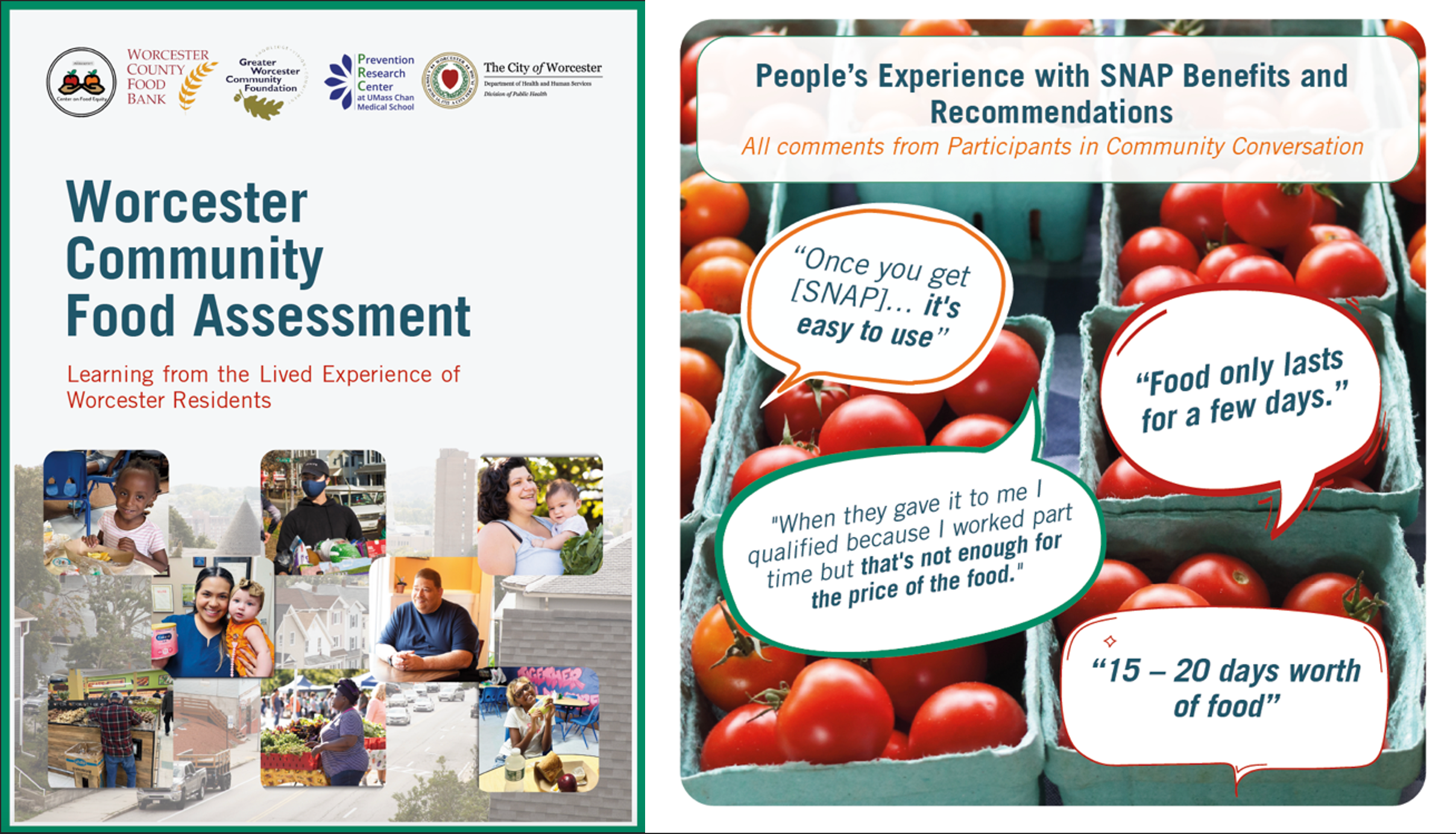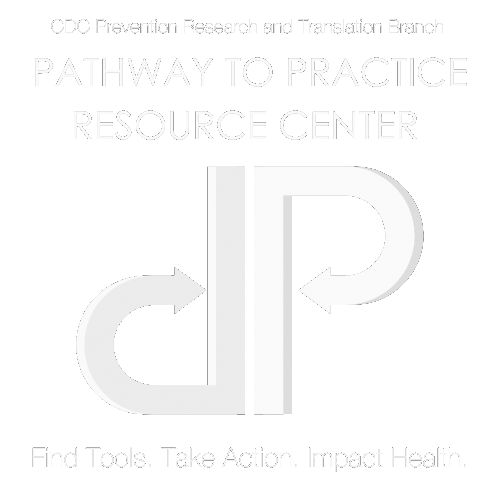Worcester Community Food Assessment
*Click the image to read the Worcester Community Food Assessment*
In 2023-2024, the Worcester Community Food Assessment (CFA) sought to understand the experiences of individuals and groups who face food insecurity in Worcester, Massachusetts. A Steering Committee oversaw the implementation of the CFA and analysis of the data. Members included representatives from:
- Center on Food Equity
- City of Worcester Division of Public Health
- Greater Worcester Community Foundation
- Prevention Research Center at UMass Chan Medical School
- UMass Chan Medical School Division of Health Systems Science
- Worcester County Food Bank
- Worcester Regional Research Bureau.
The purpose was to: "To identify opportunities and gaps in the local food system to decision-making facilitate about areas for (big) investments to address food insecurity most effectively in the highest priority areas." Assessment teams surveyed and conducted community conversations with Worcester residents experiencing food insecurity, surveyed food pantries to learn more about their experiences, and visited summer food program sites.
Our team contributed scientific input to this assessment by leading data collection and data analysis.
We developed, conducted, and analyzed a Worcester Community Food Assessment survey in 8 languages. The CFA team held Community Conversations with people from specific populations to learn more about their experiences accessing food and food assistance programs such as food pantries, and their shopping patterns. We led the qualitative analysis of these Community Conversations, analyzed in partnership with community leaders. We used an analytic approach called rapid qualitative analysis. Grace W. Ryan, PhD, MPH and Melissa Goulding, PhD, MS trained community members and UMass Chan staff and students to use this approach. Check out our rapid qualitative analysis tools here!
The following staff, students and faculty were involved in this work: Amy Borg, Princilla Minkah, Christine Frisard, Claire Branley, Melissa Goulding, and Grace Ryan.
Key findings identify strengths and areas for improvement in our current federally-funded food safety net programs and their access. The CFA uncovered:
- Survey respondents who reported children in the household, especially households that identified as Hispanic, were more likely to be food insecure;
- Many residents who faced food insecurity but were not using food assistance programs did not know about them;
- The benefits of food assistance programs, such as SNAP (Supplemental Nutrition Assistance Program) were too low, or the income cut-off points to qualify for them were too low;
- There were difficulties accessing food assistance programs (particularly SNAP);
- Residents faced transportation barriers when accessing food.
Barriers to accessing these programs have produced tremendous stress for local food pantries and food and meal distribution programs. Findings demonstrate the inherent vulnerability and inequities of our current economic system and the inadequacy of social safety net programs to address the needs this system produces. Hunger is a solvable problem, but until there is national will to align resources and enrollment, we continue to need local food assistance programs.
The CFA made recommendations based on an equity-based framework under 5 priority areas.
Priority Areas:
- Centering Lived Experience in Advocacy
- SNAP
- Communication
- Transportation
- Program Access & Delivery
Read the full community food assessment here!


